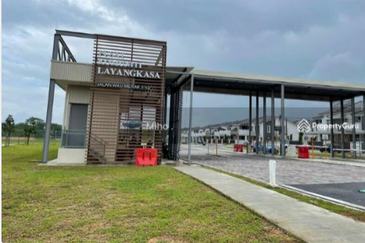
Many gripe that strict policy over loan approvals is hampering the property market from its current doldrums. But how true is that?
An analyst from an investment banking firm thinks there is a misconception about banks holding back loans.
“If you study the statistics, you will see that the approvals on the property sector [loans] are at record high. So it is not that they don’t want to lend; they just cannot continue to lend in this fashion,” she says.
“Secondly, this year, there has been improvement in loan indicators. Residential loan approval rates have improved, so how come some of the developers are not seeing the full impact?”
The analyst who declined to be named also notes that most of the grouses regarding bank lending come from listed developers who have to compete with two other types of developers — government housing schemes and non-listed developers.
“Many of the non-listed developers are already selling in the affordable market and they can roll their projects out quickly. So you have more competition along with government housing schemes such as PR1MA. In addition, the government has endorsed the special-end financing scheme for PR1MA projects,” she adds.
She also notes that previously, the public would not have heard of developers such as Maxim Holdings Sdn Bhd, Binastra Land Sdn Bhd and Aset Kayamas, but they are developing RM300,000 to RM400,000 high-rise developments in urban areas, which are highly appealing.
“Bank Negara is saying that it is not that we are not lending — we are. But the thing is that if the developer does not have the right product positioning… and what’s more, the private developers now have to compete with PR1MA,” the analyst elaborates.
“You cannot just blame the banks. They are very supportive with [the lending with] what they have. The question is, do you want the banks to lend like there is no tomorrow and then kill the market 10 years down the road? This is something that developers need to think about. It is cyclical and is not always grow, grow, grow period,” says the analyst.
Meanwhile, RHB Research Institute Sdn Bhd senior analyst Kok Wen notes that the interest of property developers needs to be balanced with the interest of the people.
“With the election coming, does the government want to ease the lending policies to [help] the developers, [which may result] in house pricing going up, or do you still want to maintain the current [financing] policy and control house prices so that the rakyat is happy with you? I think they (the government) need to balance these two. The safer thing for them is to continue with the affordable housing scheme.
“Some may want to propose that homebuyers be allowed to raise their Account 2 EPF (Employees Provident Fund) withdrawal,” Kok Wen opines.
To Affin Hwang Capital Research senior associate director for equity research Loong Chee Wei, higher wages will aid market recovery.
“It takes time for the current strong GDP growth to translate into wage growth. As market sentiment improves with political uncertainty out of the way post-election, with a stronger ringgit and sustained stock market performance, all these will contribute to market recovery,” he offers.
Meanwhile, the analyst who wants to remain anonymous suggests that the focus be on two numbers — is the GDP growth going to improve and are unemployment rates going down?
The analyst notes that in the short term, the only policy that will stir market recovery must come from the banks by easing lending. However, “this is only a short-term gain and long-term pain. It will kill us in the long run. In this situation, it is best for market forces (demand and supply) to work on its own. Because whatever you try to do now will be detrimental to the market,” the analyst concludes.
TOP PICKS BY EDGEPROP

Fera Residence @ The Quartz
Wangsa Maju, Kuala Lumpur

M Adora @ Wangsa Melawati
Wangsa Maju, Kuala Lumpur

M Adora @ Wangsa Melawati
Wangsa Maju, Kuala Lumpur

Sunway Rydgeway Puncak Melawati
Taman Melawati, Selangor

LSH33 ( Laman Seri Harmoni )
Sentul, Kuala Lumpur

M Adora @ Wangsa Melawati
Wangsa Maju, Kuala Lumpur



















